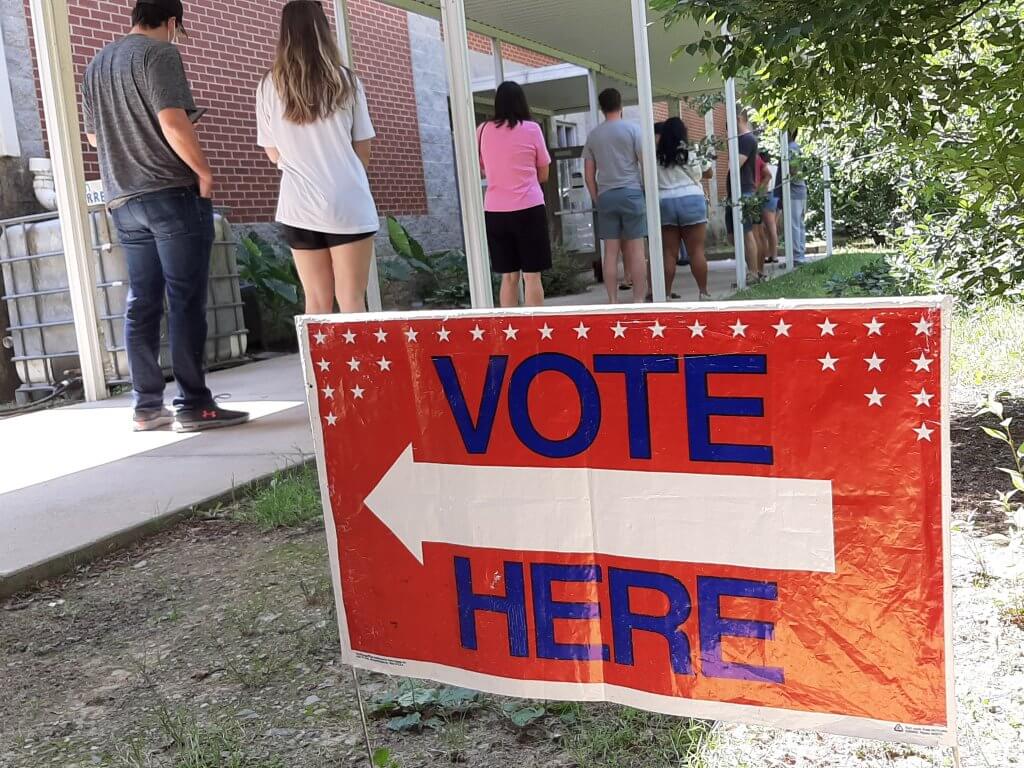
A federal judge ruled Monday that every polling place in Georgia must have an updated backup paper list of eligible voters for Election Day on Nov. 3, after problems with electronic poll books contributed to voting delays during the primary.
The order would not replace the computers currently used to check in voters at their polling place, but provide “at least a modicum of the voting backup plan” needed in case that equipment fails, Judge Amy Totenberg wrote in a 67-page order.
Currently, the poll books are used to verify a registered voter’s identity, confirm they are at the correct precinct and ensure they did not already cast a ballot early in person or by voting absentee. The PollPads used in Georgia are also how ballots are loaded onto the touchscreen ballot-marking devices that print out a paper ballot with the voters’ choices.
Paper backup lists are already required at every polling place in Georgia, but those do not indicate if someone has voted already. The secretary of state’s office is investigating 1,000 alleged cases of double voting that potentially emerged from poll workers not calling county officials to see if those people were eligible.
Reports of the poll books failing to record voter signatures, failing to encode the cards needed to vote on the touchscreen ballot-marking device and other issues have been present since the pilot of the system in fall 2019, and could cause imminent harm, the judge said.
“In sum, the Coalition Plaintiffs presented compelling evidence demonstrating that the PollPads failed to perform many of their critical functions during the 2019 pilot elections, the June 2020 primary election, and again in the August 2020 runoff election,” she wrote.
In a two-day hearing earlier in September, state and local elections officials said that making such a change would be inconvenient, but feasible, especially since the state already provides each county with an updated voter list before Election Day.
“If we can provide it digitally, it would have to be something counties could print out,” state Election Director Chris Harvey said. “There’s no way we could print it on that Saturday before the election and get it to 159 counties – that’s just impossible.”
Fulton County Elections Director Rick Barron said that in some cases, multiple backup lists would be needed for larger precincts.
“If you want to be able to check people in and if multiple poll pads fail, you need to have enough paper precinct lists to check the voters out,” Barron said. “If you have one, you’re going to be able to do it but it’s going to be a slower process.”
The judge did not rule on a larger request to completely bar the state from using electronic voting machines, but offered a narrow decision that she said would be possible for state and county elections officials to implement less than six weeks before Election Day.
“It is not too late for Defendants to take these reasonable concrete measures to mitigate the real potential harms that would otherwise likely transpire at precinct polling locations grappling with the boiling brew created by the combination of new voting equipment issues and old voter data system deficiencies,” she wrote.
Several times now, Totenberg has been asked to make changes to Georgia’s election administration through this lawsuit close to an election, and while generally deferring to election administrators she also has excoriated them for having “buried their heads in the sand” regarding issues with the state’s voting system.
This story appears through a partnership with Georgia Recorder and Georgia Public Broadcasting.






